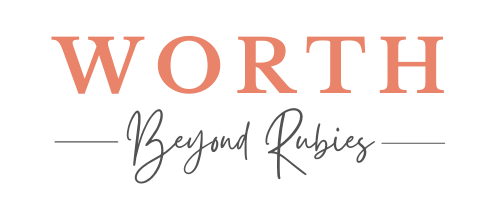Hebrew for Christians: Why Christians Should Study Hebrew
Please note that this article may contain affiliate links. As an Amazon Associate, I earn on qualifying purchases at no additional cost to you. You can read more at the bottom of this page or read my full disclosure on my Affiliate Disclosure Page
Hebrew for Christians has tremendous benefits and can enrich the study of scripture like never before.
Christians often rely on translations of the Bible to get a sense of what God is saying to them, but they may not be aware of all that they’re missing by not reading scripture in its original language. A translation is just that!
By learning Hebrew, Christians can gain a deeper understanding of the Bible and grow closer to God.
Learning Hebrew can help Christians uncover new layers of meaning in scripture that may have been hidden in translation. Additionally, learning Hebrew can give Christians access to ancient Jewish interpretations and commentaries of the Bible which are often very insightful.
So join me as we explore the benefits of Hebrew for Christians and Messianic Jewish believers.

Is Hebrew Just for the Jewish People?
Is it possible to learn the Hebrew language without being of Jewish heritage?
Have you ever wondered why Christians should study Hebrew, or have you considered doing so?
There are many advantages of Hebrew for Christians and definitely for Messianic Jews. Not the least of which is the ability to study the Hebrew scriptures in the original language which provides great benefits and a greater overall understanding of the scriptures.
Many people in seminaries who are training to be church leaders and those doing religious studies learn Hebrew.
I know quite a bit of Biblical Hebrew but I will be taking more of it in my Jewish Studies graduate program and just what I know already has opened up a whole new world of study for me.
Did Jesus Speak Hebrew?
Now, some people teach that Hebrew for Christians is important because Jesus spoke Hebrew and taught in Hebrew so Christians should learn it as well and that is not exactly true on its face.
The fact is that He spoke Aramaic as his primary language, which was the common tongue of that region after the Babylonian exile and was more likely the case given His coming from the Galilee.
However, we do know in all likelihood that Jesus also had a workable knowledge of Hebrew since He did read the Torah publicly (and of course we are speaking here of Yeshua in his humanity…after all, He was the Living Torah).
So He knew Hebrew but it was likely not His first language that He spoke in day to day life and not what He conversed in day to day.
Some extra-Biblical writings may indicate He also knew some Greek but again, not enough of it to have been a primary language.
Many of these languages of antiquity were a part of that region at that time and were frequently heard and spoken but fluency in them was another issue altogether.
Like many Jews, we know enough to do the prayers, celebrate the festivals, and study the Bible but we likely couldn’t carry on a full conversation and that is probably the case here with Yeshua. It just was not the language spoken at length at that time.
We don’t see evidence of Him speaking Hebrew to anyone in the Temple or elsewhere except when it is specifically quoted. The only time it can be inferred is when reading Torah. Then we know He read in Hebrew.
But teaching in the Temple (not Torah reading but actually teaching) did not have to be done in Hebrew any more than our current teachings in synagogue need to be done in Hebrew today.
He would have spoken to the people in the synagogue in whatever language they spoke and He would have spoken in the Temple likely in Aramaic apart from prayers and Torah reading.
Our prayers and Torah readings are done in Hebrew, and our Jewish feasts with their prayers and blessings are celebrated in Hebrew but our Rabbi does the Drash (like a sermon or teaching) in English.

Was the Entire Bible Written in Hebrew?
Many of the writers of the Apostolic Writings (NT) did not write in Hebrew.
Many of the writings were in either Aramaic or Greek with some Hebrew verbiage used here and there. However, most of the books of the NT were written in Greek.
It is just a myth that the New Testament was written in Hebrew just because it was written by mostly Jewish authors.
Once again, Hebrew had become far less common in that region after the Babylonian exile. And sadly, it did virtually go extinct for a time as a spoken language and only remained in Biblical study until it was revived due in large part to Zionist efforts and the efforts of Eliezer Ben-Yehuda in the late 19th or early 20th century.
Jude was written in Greek – in fact, it was written in a style of Greek that calls into question whether it was actually written by Jude or penned by a scribe or a ghostwriter.
Matthew was written in Greek as was Luke and there are more.
So you can see that Hebrew was NOT the language of the New Testament simply because of the state of the national language and how it had evolved at that time as well as where these writers were at the time of the writings.
Some wrote post 70AD when the Temple had been destroyed and the Jewish community was no longer centered in Jerusalem due to being exiled so they were living in other regions.
People looking to get Hebrew translations of the NT because they believe it is the “original translation” are unfortunately mistaken. It is merely the NT translated INTO Hebrew, not restored to Hebrew.
Hebrew for Christians – Traveling to Israel
So is Hebrew relevant in Judaism today and is it relevant in the Nation of Israel?
Well, yes and no.
Biblical Hebrew IS important in Judaism today all over the world. As Jews, it is what we read our Torah portions from each week in synagogue. It is what we use when we daven or do our daily prayers.
For those, Biblical Hebrew is very important to the observant Jew and Biblical Hebrew for Christians can be important for the same reason; to study the Old Testament in its original language. It will not help you in studying the New Testament nor will it help you when traveling to Israel or speaking to the people of Israel.
While Hebrew IS the national language of Israel, in its current form it is not the same as Hebrew in the Bible.
There is a difference between Biblical Hebrew and Modern Hebrew. It is much like we have King James English and modern English or Biblical Greek or Koine Greek and modern Greek.
Yes, some words may be recognizable and the letters may look similar in certain print but modern Hebrew has its own style of writing and its own style of speaking. It is like taking any ancient language and trying to make it fit in modern culture.
So Biblical Hebrew should be studied for Biblical studies and not for modern travel to Israel or for use in modern Hebrew culture.
The best way to learn Hebrew for traveling to the Holy Land the first time is take a modern Hebrew course and learn things like asking “How much is this?” and “How do I get to Hotel ____?” and other relevant phrases you may need.
Learn Hebrew for Christians – Besorah Learning Center
So to conclude, yes – I do believe Hebrew for Christians and DEFINITELY for Messianic Jews is important because translations are just that – they are someone’s translation of the original language and when you can go back to the original then that is better, and has great benefit.
But this will help you for the Tanakh (the Old Testament books) primarily. For the Brit Chadasha or Apostolic Writings, Greek might be what you want to study!
If you are interested in learning more about Jewish-Christian relations, check out this video by one of the great Messianic Jewish scholars and one of my favorite professors, Dr. Jen Rosner here on my site.
If you are interested in learning Biblical Hebrew and want to become a Christian student of the Hebrew language, check out my learning site, Besorah Learning Center!
We are offering Beginner’s Biblical Hebrew so that you can begin to go through the Hebrew books of the Bible, the Tanakh, and learn the richness contained in them in the original language.
And be sure to check out our new Besorah Monthly Student Membership which will allow you to study Hebrew on an ongoing basis PLUS other courses, Bible Study Methods, monthly Bible teachings, E-Books and so much more!
This video gives good reasons for wanting to learn Biblical Hebrew. This is not an endorsement of any product or institute.

This was so enjoyable, learning something I have always wanted desperately to learn. Thank you for making it so much fun, my hope one day is to be able to read Hebrew Bible. Thank you so much
Thank you! I am glad you enjoyed it!
I am so glad I found this. I have been trying to teach myself Hebrew for a while. I want to enrich my understanding of the Biblical text. I am also trying to learn more about the culture for Biblical context. Thank you fo this!
I am so glad you found it! Thank you so much!
Hello : )
I found your page a couple days ago from a post I saw on Pinterest. I am hoping to learn Hebrew to be able to read the Hebrew Bible and to be able to speak Hebrew.
Hi Melinda…I am glad you found the page. I am going to be doing more Hebrew after the summer. In the meantime, my friend Izzy has an amazing site where you can learn Biblical Hebrew and learn the letters and their in depth meanings in the way they are written today as well as in the scrolls and his site is holylanguage.com It is amazing and so is he!
Thank you! I’ll check his site out. Just a heads up I sent you an email earlier today asking if you had any more lessons.I didn’t realize you had replied here. Thanks again. I am learning quite a bit.
Yes there are. I am not sure why the link is not working but I will check it out. Here is the link to Lesson 4 https://www.worthbeyondrubies.com/hebrew-for-christians-lesson-four/
Here is Lesson 5 https://www.worthbeyondrubies.com/hebrew-for-christians-lesson-five/
I was moving it offline to an email format so that is why it is kind of disconnected right now.
How can I get a Shofar
You can go to this link for a great selection! https://shrsl.com/2rrli